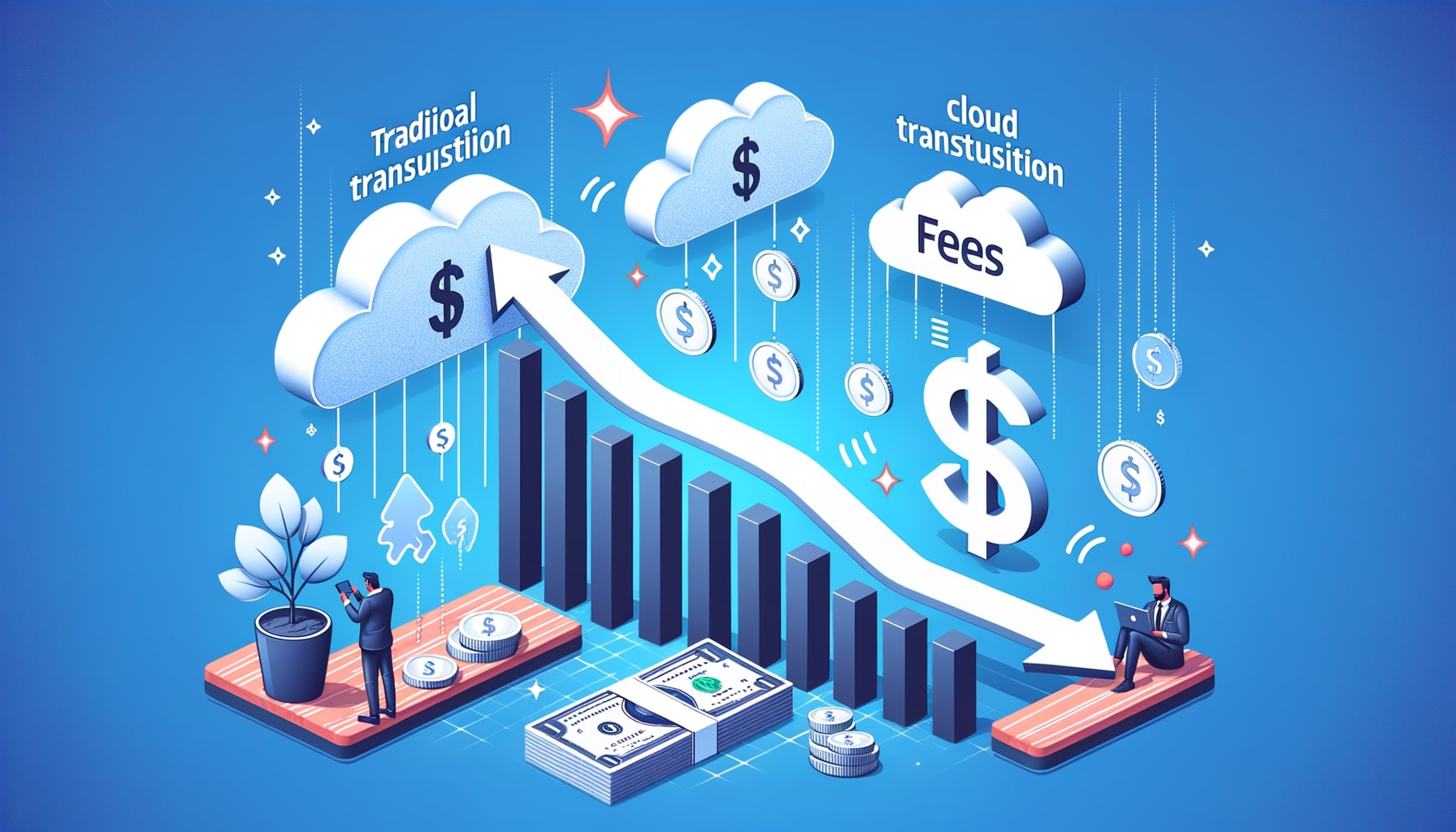Artificial Intelligence and Machine Learning in Cloud Payment Processing
Artificial Intelligence (AI) and Machine Learning (ML) have emerged as powerful technologies that are revolutionizing various industries, and cloud payment processing is no exception. With the increasing popularity of online transactions and the need for secure and efficient payment processing, AI and ML have become essential tools in ensuring seamless and secure transactions for users. In this article, we will explore the role of Artificial Intelligence and Machine Learning in cloud payment processing, focusing on fraud detection algorithms and AI-driven customer support.
Introduction to Artificial Intelligence and Machine Learning in Cloud Payment Processing
Artificial Intelligence refers to the simulation of human intelligence in machines that are programmed to think and learn like humans. Machine Learning, on the other hand, is a subset of AI that enables machines to learn from data and improve their performance without being explicitly programmed. When applied to cloud payment processing, Artificial Intelligence and Machine Learning algorithms can analyze vast amounts of data, detect patterns, and make predictions, leading to more efficient and secure payment processing.
Understanding Cloud Payment Processing and its Challenges

Cloud payment processing involves the transfer of funds between a buyer and a seller through an online platform. It eliminates the need for physical cash or traditional payment methods, providing convenience and accessibility to users. However, it also presents several challenges, such as security risks, fraud, and the need for efficient customer support.
One of the primary challenges in cloud payment processing is fraud. As online transactions increase, so does the risk of fraudulent activities. Fraudsters employ various techniques, such as identity theft, phishing, and hacking, to gain unauthorized access to user accounts and steal sensitive information. This poses a significant threat to both users and payment processors, highlighting the need for robust fraud detection algorithms.
The Role of Artificial Intelligence in Cloud Payment Processing

Artificial Intelligence plays a crucial role in cloud payment processing by enhancing security measures and improving the overall user experience. AI algorithms can analyze vast amounts of data in real-time, detecting patterns and anomalies that may indicate fraudulent activities. By continuously learning from new data, AI systems can adapt and evolve to detect new and emerging fraud techniques, providing a proactive approach to fraud prevention.
AI also enables payment processors to automate various tasks, such as identity verification and risk assessment. By leveraging AI-powered algorithms, payment processors can quickly and accurately verify user identities, reducing the risk of fraudulent transactions. Additionally, AI can analyze user behavior and transaction patterns to identify suspicious activities, flagging them for further investigation.
The Role of Machine Learning in Cloud Payment Processing

Machine Learning complements AI in cloud payment processing by enabling systems to learn from data and improve their performance over time. ML algorithms can analyze historical transaction data, identify patterns, and create models that can predict the likelihood of fraudulent activities. By continuously updating these models with new data, ML systems can adapt to changing fraud patterns and improve their accuracy in detecting fraudulent transactions.
Machine Learning also plays a vital role in risk assessment and decision-making in cloud payment processing. ML algorithms can analyze various factors, such as transaction amount, location, and user behavior, to assess the risk associated with a particular transaction. This enables payment processors to make informed decisions in real-time, such as approving or declining transactions based on the likelihood of fraud.
Fraud Detection Algorithms in Cloud Payment Systems
Fraud detection is a critical aspect of cloud payment processing, as it ensures the security and integrity of transactions. Traditional rule-based fraud detection systems are often limited in their ability to detect new and emerging fraud techniques. This is where Artificial Intelligence and Machine Learning algorithms come into play, revolutionizing fraud detection in cloud payment systems.
Importance of Fraud Detection in Cloud Payment Processing
Fraud detection is of utmost importance in cloud payment processing to protect users from financial losses and maintain the trust and credibility of payment processors. Fraudulent activities can result in significant financial losses for both users and payment processors, leading to reputational damage and legal consequences. Therefore, robust fraud detection algorithms are essential to identify and prevent fraudulent transactions.
How Artificial Intelligence Enhances Fraud Detection in Cloud Payment Systems
Artificial Intelligence enhances fraud detection in cloud payment systems by analyzing vast amounts of data and detecting patterns that may indicate fraudulent activities. AI algorithms can analyze various data points, such as user behavior, transaction history, and device information, to identify anomalies and flag suspicious activities. By continuously learning from new data, AI systems can adapt to new fraud techniques and improve their accuracy in detecting fraudulent transactions.
AI-powered fraud detection systems can also leverage advanced techniques, such as anomaly detection and behavioral analysis, to identify fraudulent activities. Anomaly detection algorithms can identify unusual patterns or behaviors that deviate from normal user behavior, indicating potential fraud. Behavioral analysis algorithms can analyze user interactions and transaction patterns to identify suspicious activities, such as multiple transactions from different locations within a short period.
Machine Learning Techniques for Fraud Detection in Cloud Payment Systems
Machine Learning techniques play a crucial role in fraud detection in cloud payment systems by enabling systems to learn from historical transaction data and improve their accuracy over time. ML algorithms can analyze vast amounts of transaction data, identify patterns, and create models that can predict the likelihood of fraudulent activities.
One of the commonly used ML techniques for fraud detection is supervised learning. In supervised learning, ML algorithms are trained on labeled data, where each transaction is labeled as either fraudulent or legitimate. The algorithms learn from this labeled data and create models that can classify new transactions as fraudulent or legitimate based on the patterns identified during training.
Another ML technique used in fraud detection is unsupervised learning. Unsupervised learning algorithms analyze unlabeled data and identify patterns or anomalies that may indicate fraudulent activities. These algorithms do not require labeled data for training and can detect new and emerging fraud techniques.
AI-driven Customer Support for Cloud Payment Users
In addition to fraud detection, AI also plays a crucial role in providing customer support to cloud payment users. AI-driven customer support systems can enhance user experience, improve response times, and provide personalized assistance to users.
The Need for AI-driven Customer Support in Cloud Payment Processing
Cloud payment processing platforms often handle a large volume of transactions and user inquiries. Traditional customer support methods, such as phone calls or emails, may not be efficient in handling the high volume of queries and providing timely responses. This is where AI-driven customer support comes into play, providing instant and personalized assistance to users.
AI-driven customer support systems can handle a wide range of user inquiries, such as transaction status, account balance, or dispute resolution. By leveraging Natural Language Processing (NLP) algorithms, these systems can understand user queries and provide relevant and accurate responses. This reduces the need for manual intervention and improves response times, leading to enhanced user satisfaction.
How Artificial Intelligence Improves Customer Support in Cloud Payment Systems
Artificial Intelligence improves customer support in cloud payment systems by providing instant and personalized assistance to users. AI-driven chatbots or virtual assistants can handle user inquiries in real-time, providing immediate responses and resolving common issues without the need for human intervention.
AI-powered customer support systems can also analyze user interactions and transaction history to provide personalized recommendations or offers. For example, if a user frequently makes international transactions, the system can suggest currency conversion options or provide information about foreign transaction fees. This personalized assistance enhances user experience and increases user satisfaction.
Machine Learning Applications in AI-driven Customer Support for Cloud Payment Users
Machine Learning applications in AI-driven customer support for cloud payment users enable systems to learn from user interactions and improve their performance over time. ML algorithms can analyze user feedback, identify patterns, and make predictions about user preferences or issues. This enables the system to provide more accurate and relevant responses to user inquiries.
One of the ML applications in AI-driven customer support is sentiment analysis. Sentiment analysis algorithms can analyze user feedback or social media posts to determine the sentiment or emotion behind the text. This enables the system to understand user satisfaction levels and identify areas for improvement in customer support.
Best Practices for Implementing AI and ML in Cloud Payment Processing Systems
Implementing AI and ML in cloud payment processing systems requires careful planning and execution. Here are some best practices to consider:
- Start with a clear objective: Clearly define the problem you want to solve or the goal you want to achieve with AI and ML in payment processing.
- Gather high-quality data: Ensure that you have access to large amounts of high-quality data to train ML algorithms effectively.
- Choose the right algorithms: Select ML algorithms that are suitable for the specific problem you are trying to solve, such as fraud detection or customer segmentation.
- Regularly update and retrain models: ML models need to be regularly updated and retrained to adapt to changing patterns and trends in payment processing.
- Ensure data privacy and security: Implement robust security measures to protect sensitive customer data and comply with data protection regulations.
- Monitor and evaluate performance: Continuously monitor the performance of AI and ML models and make necessary adjustments to improve accuracy and efficiency.
Frequently Asked Questions
Q.1: What is the role of AI in cloud payment processing?
AI plays a crucial role in cloud payment processing by enhancing security measures, improving fraud detection algorithms, and providing personalized customer support. AI algorithms can analyze vast amounts of data, detect patterns, and make predictions, leading to more efficient and secure payment processing.
Q.2: How does machine learning enhance fraud detection in cloud payment systems?
Machine Learning enhances fraud detection in cloud payment systems by enabling systems to learn from historical transaction data and improve their accuracy over time. ML algorithms can analyze vast amounts of transaction data, identify patterns, and create models that can predict the likelihood of fraudulent activities.
Q.3: How can AI-driven customer support benefit cloud payment users?
AI-driven customer support benefits cloud payment users by providing instant and personalized assistance. AI-powered chatbots or virtual assistants can handle user inquiries in real-time, providing immediate responses and resolving common issues without the need for human intervention. This improves response times and enhances user satisfaction.
Conclusion
In conclusion, the integration of artificial intelligence and machine learning in cloud payment processing has revolutionized the industry. These technologies have enabled more efficient fraud detection algorithms, ensuring secure transactions for users. Additionally, AI-driven customer support has improved user experience and satisfaction. As the field continues to evolve, we can expect further advancements in cloud payment processing with the help of AI and machine learning. The combination of Artificial Intelligence and Machine Learning has the potential to transform the way we process payments, making it more secure, efficient, and user-friendly.










